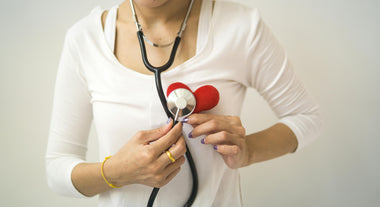Menopause and the Big Lie: Part 4

If you have not read Part 1, Part 2 or Part 3 of this series, I encourage you to do that now before proceeding.
The Lasting Impact of the WHI Trial
The Women’s Health Initiative (WHI) trial concluded that hormone replacement therapy (HRT) was dangerous for women. But the bad news was not as bad as presented and the good news was glossed over. That didn’t matter: Physicians were – and continue to be – spooked.
To seal the deal, warnings around breast cancer, blood clot, and heart disease risk got printed all over inserts and boxes containing any and all hormone-containing compounds – even if they were not the same formulations as what was evaluated in the trial and even if they were presented in a different dose/format (like vaginal estrogen cream). Overnight, prescribing HRT was relegated to “fringe” providers. And medical schools effectively stopped teaching doctors about treating menopause.
Today we live with that legacy: less than 6% of OB/GYN and primary care providers get even one hour (!) of menopause education in their training. The end result? A dearth of physicians that are comfortable managing the symptoms of women suffering through “the change.”
What New Research Reveals About HRT
Meanwhile, science has marched on. Not that most women – or their physicians – are even aware. Since the WHI was published, additional studies have found that timing of HRT initiation matters. Women who commence HRT within 10 years of menopause actually experience fewer cardiovascular events compared to those who are not placed on hormones. Those who commence HRT more than 10 years after menopause do see a small increase in cardiovascular events in the first year of therapy but then see an overall decrease second year onward.
The Role of Formulation and Delivery Method
And in terms of blood clotting, hormone formulation is key. Unlike the pill form, estrogen creams and patches do not raise clot risk. Nor does micronized progesterone (the natural form of progesterone), whether delivered by pill or pessary. Remember, the WHI used a combination of synthetic progesterone and estrogen and dispensed the hormones in tablet form. This is a wildly different approach compared to the formulations available today.
For women who still want to – or need to – avoid systemic hormone delivery, vaginal estrogen cream has been shown to effectively relieve vaginal dryness and reduce risk of urinary tract infections without increased risk of any negative health outcomes. Though, inexplicably, the black box warnings claiming otherwise are still there.
And we haven’t even touched on the potential benefits of testosterone supplementation in women!
My Personal Menopause Journey
My personal menopause experience was less about hot flashes and night sweats (which I had my share of). It was all about sleep. For the life of me, I could not get more than 4 to 5 hours per night. Sometimes, I hardly slept at all. I was constantly exhausted, my cognitive function was becoming affected, and I was struggling emotionally. And nothing I tried – meditation, melatonin, magnesium, even CBD – made any difference. But having been in the room when those WHI results were first announced, I never even once considered HRT as an option.
It was only after listening to a random podcast about new HRT data and looking into more recent studies that I asked my GYN physician to place me on hormone therapy. The improvement in sleep that I have experienced since then has been nothing short of miraculous. Looking back I now realize I suffered needlessly for 5 years. And I probably missed out on most of the osteoporosis protection. But I just didn’t know any better. Even as a physician.
What Women Need to Know
This was my experience and my journey. I’m not suggesting that everything gets better with HRT, or that every woman should even take it, or that everyone will respond the same way I did. What I really want you to know is that you have options – certainly many options when it comes to the various delivery forms of HRT. And that risks of HRT are relatively low (though obviously influenced by individual health variables unique to each of us). Women have been brainwashed to believe that we have no options. That we just need to buck up and suffer in silence.
That’s simply not true.
Next up, how to help manage menopause and its symptoms without drugs.
About Step One Foods: Step One Foods offers convenient, scientifically-formulated foods clinically validated to rapidly reduce cholesterol and improve cardiometabolic health. Real food. Real results. Unapologetically delicious. Learn more at steponefoods.com.

Tested & Proven Results.
- Cardiologist formulated
- Supported by over 500 publications
- Clinically-proven, in a double-blind randomized trial with Mayo Clinic and The University of Manitoba
80% of participants lowered their cholesterol in just 30 days. With just two servings per day, Step One Foods offers a proven-effective way to naturally lower LDL (bad) cholesterol.
Get heart health tips and articles like this, delivered right to your email.
New articles every week.
You may also like...

The Clock You Should Be Paying Attention To (But Probably Aren’t)

The LDL Chart Fueling Confusion Online - And What It Misses

You don’t need to avoid foods with cholesterol…except for these


